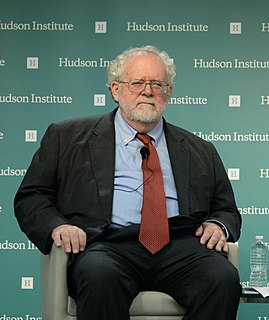Top 15 Quotes & Sayings by Walter Russell Mead
Explore popular quotes and sayings by an American educator Walter Russell Mead.
Last updated on November 23, 2024.
Carter's hopes died when the Soviet Union invaded Afghanistan and he ended up having to reverse policy and launch the military buildup that Reagan continued. Mr. Obama would be forced back into a war on terror if terrorist groups pull off enough damaging or frightening attacks to force this issue to the fore.
Unlike some, I don't claim to hold the mystic key to the future. But judging from past events, it seems to me that those who want to prophesy the imminent end of America's unique global role have a harder case to make than those who think we will limp on for a while, making a mess of things as usual.
When Edward Gibbon was writing about the fall of the Roman Empire in the late 18th century, he could argue that transportation hadn't changed since ancient times. An imperial messenger on the Roman roads could get from Rome to London even faster in A.D. 100 than in 1750. But by 1850, and even more obviously today, all of that has changed.
You look at the steamboat, the railroad, the car, the airplane - not all of these were invented in the Anglo-American world, but they were popularized and extended by it. They were made possible by the financial architecture, the capital intensive operations invented and developed by the Anglo-Americans.




















